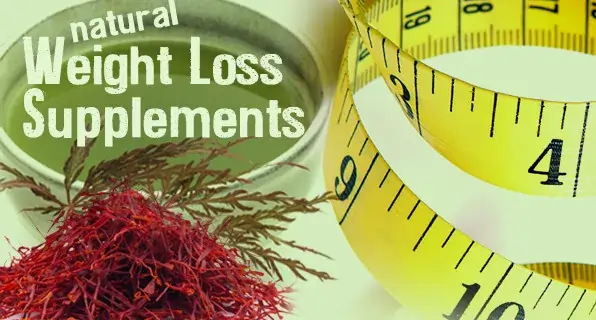Best Supplements For Fat Loss Women
In the quest for achieving fat loss, many women explore a combination of strategies, including balanced nutrition, regular exercise, and lifestyle adjustments. While these remain the cornerstone of any effective fat-loss plan, supplements can play a supportive role by enhancing metabolism, reducing appetite, and improving energy levels.
Choosing the right supplements tailored to individual needs can make a significant difference in achieving sustainable results. This guide explores the best supplements for fat loss, specifically designed to support women in their health and fitness journey.
The Top 6 Women’s Supplements for Weight Loss
1. Magnesium
The body uses magnesium for a number of very significant functions. Among other things, it produces new proteins, controls blood pressure, and aids in blood sugar regulation.
Chronic low-grade inflammation brought on by a magnesium shortage is connected to:
- Being overweight
- Diabetes
- Sleep disturbances
- Symptoms of depression
- Heart-related conditions
- You can see how this relationship might be broken by magnesium supplementation.
What the science says is as follows.
Blood magnesium levels were found to be inversely correlated with fat mass in a 2023 study that included 1,000 participants, both male and female. In other words, fat mass increases as magnesium levels decrease.
Those who slept well and did not suffer from long-term illnesses like diabetes, depression, or high blood pressure showed a stronger correlation.
Since there was no gender difference, both men and women may benefit from taking magnesium supplements. Additionally, over half of the research participants had low magnesium values, indicating that magnesium insufficiency was rather widespread.
By using magnesium supplements, you may be able to lose weight.
In 2020, 32 studies on magnesium supplements were examined in a systematic review and meta-analysis. The studies, which evaluated dosages of 48 to 450 milligrams (mg) per day and lasted six to 24 weeks, were quite diverse.
According to the data, taking magnesium supplements led to a “significant decrease in body mass index,” or BMI.
However, certain groups were found to benefit more from supplements than others.
Body weight, waist circumference, waist-to-hip ratio, and body fat percentage did not significantly change overall. However, there was a notable shift in waist circumference and body weight in specific subgroups for:
- Individuals who are obese
- Individuals with elevated blood pressure
- Individuals with conditions linked to insulin resistance
- Individuals who were magnesium deficient at the beginning of the experiment
- Ladies
Because pregnant women may require more magnesium, magnesium supplements may be especially important for them. Additionally, the absorption of magnesium may be hindered by some disorders that affect women, such as polycystic ovarian syndrome (PCOS).
Advantages:
Magnesium insufficiency is prevalent, frequently goes untreated, and can particularly impact women.
Because magnesium insufficiency and obesity are associated with sleep difficulties and depression disorders, magnesium supplements may be a two-pronged weight loss tool. However, this requires further investigation.
The data supporting the use of magnesium supplements to help people lose weight is encouraging.
Cons:
For people without obesity, a magnesium deficit, or specific medical issues, magnesium supplements might not be as helpful.
Ideal for: Women, those who are magnesium deficient, those who are obese, have sleep issues, suffer from depression, or have specific medical conditions like diabetes or high blood pressure.
Conclusion: In women and obese people, magnesium supplements have been associated with lower body weight, waist circumference, waist-to-hip ratio, and body fat percentage, as well as a lower BMI.
2. Caffeine
If we told you that having an additional cup of coffee in the morning would aid in your weight loss attempts, you would probably not believe us, and for good reason. However, there is some science to this way of thinking.
Both a thermogenic (something that promotes heat production) and an appetite suppressant are possible effects of caffeine. Additionally, it may accelerate the breakdown of fat by your body, known as fat oxidation.
More than 600 men and women participated in 13 randomized controlled trials that were the subject of a 2018 systematic review and meta-analysis.
Intake of caffeine may promote weight, BMI, and body fat reduction.
However, there are not many studies on caffeine supplements for weight loss. More research is needed in this area because caffeine can be found in a variety of foods and beverages, including kola nuts, green coffee bean extract, and coffee.
Advantages:
Consuming caffeine has been associated with a decrease in body fat and BMI as well as weight loss.
It goes beyond coffee and caffeine supplements. Supplements containing kola nuts, green tea, and yerba maté have all been connected to weight loss.
Cons:
Tachycardia (an elevated heart rate), nausea, jitters, and anxiety are among the adverse effects. We are all aware of the consequences of consuming coffee too close to bedtime. Hi, restless night.
Coffee’s effects on weight loss can cause your body to become tolerant.
Studies on caffeine for weight loss are brief and combine multiple items, which makes it difficult to compare results, despite some encouraging findings.
It is best for: People who do not have coffee side effects or sleep issues.
Conclusion: A lower BMI, weight loss and body fat reduction have all been associated with caffeine; nevertheless, further research on caffeine supplementation is required.
3. Green Tea
In addition to coffee, this other well-liked beverage is also available as a supplement.
Catechins and caffeine are found in green tea. These substances have the potential to improve energy metabolism and cause weight loss. In addition to decreasing hunger, caffeine can increase thermogenesis and fat oxidation, all of which may help with weight loss.
According to our current studies, green tea has some promise.
Randomized controlled trials on overweight or obese women and men were examined in a 2012 meta-analysis. Green tea preparations were contrasted with a control in several investigations.
Drinking green tea was linked to a lower BMI, weight loss, and a smaller waist circumference. Nevertheless, the findings were not statistically significant and were somewhat tiny.
The eye roll
The treatment of obesity with green tea supplements was then investigated in a 2020 systematic review and meta-analysis. A lower body weight and BMI were associated with green tea.
Participants who took supplements for 12 weeks at a dosage of less than 500 mg daily saw the greatest results.
Overall, the researchers found that green tea could help control obesity when paired with a healthy, balanced diet and frequent exercise.
Last but not least, a 2015 study examined how a green tea extract affected 102 women who had central obesity, or stomach fat accumulation. Green tea extract (about 850 mg) or a placebo was administered to the women every day for 12 weeks.
The women who had been taking the green tea supplement after the study had:
- A weight decrease of roughly 2.4 pounds on average
- A decrease in body mass index
- A reduction in the waist circumference
- A reduction in total cholesterol
- Low-density lipoprotein, or bad cholesterol, has decreased.
- Reduced levels of the hunger hormone ghrelin
- elevated levels of the hormone adiponectin, which controls blood sugar
Advantages:
Reduced waist circumference, BMI, and slight weight reduction have all been associated with high-dose green tea extract.
In addition to helping people lose weight, green tea possesses anti-inflammatory, antibacterial, antioxidant, and anticarcinogenic (cancer-preventing) qualities.
It might also be beneficial for dental health and cardiovascular problems.
Cons
Green tea might not have a significant impact on weight loss.
Constipation, nausea, stomach pain, and elevated blood pressure are possible side effects. They could be mild to moderate.
Liver damage has been associated with certain green tea extracts.
Best for: Probably everyone, but particularly those curious about green tea’s additional health advantages.
Conclusion: Although the improvements may be slight, using green tea supplements may result in weight loss as well as a decreased BMI and waist circumference.
4. Protein
Although protein often conjures up thoughts of gym rats and bodybuilders, the research behind its use in weight loss is very sound.
What we know is as follows.
Excessive protein consumption over the suggested daily intake can:
- Reduce the amount of fat
- Cut down on body weight
- Keep fat-free bulk (such as muscle) intact.
- Avoid gaining weight after losing it.
This has been thoroughly discussed in our protein for weight loss guide.
In addition to supplements like protein powders, candies, shakes, and bars, you can obtain protein from foods like meat, fish, nuts, and dairy items.
It turns out that eating gluten-free or low-carbohydrate foods is not the best way to lose weight. Protein appears to be quite appealing.
Let us examine some other evidence.
In 2018, a thorough review and meta-analysis of 13 studies on whey protein supplementation in women was carried out. The findings demonstrated that whey protein increased lean muscle mass, which in turn improved body composition (the ratio of bone, muscle, and fat mass).
In order to improve body composition, it was determined that “incorporating whey protein into a weight loss program may be more beneficial.”
For those who are trying to cut back on their portion amounts, protein supplements may also be helpful. According to a small 2011 study, eating less before a meal occurs when 20 grams of casein (a milk protein) or pea protein are consumed beforehand. Drinking water before eating was likened to this.
Whey protein was not as good in promoting satiety, or the sensation of fullness, as casein and pea protein were.
There is a single issue, though. Since only male individuals were included in this study, it is unknown whether women would experience the same effect.
Furthermore, although protein supplements can promote muscle growth, they might not have a significant impact on halting muscle loss during weight loss.
Seventy obese postmenopausal women were examined in a 2018 study. A weight maintenance group, a weight loss group that took a whey protein supplement, or a weight loss group that followed a recommended daily protein intake were all given to the participants.
The whey protein-naive group lost more muscle after losing 5% of their body weight. However, there was no difference in the loss of muscle mass between the protein groups following a ten percent weight loss.
Positives:
Protein may aid in muscle growth or retention and help you maintain your weight loss.
Protein supplements can be beneficial if you are vegetarian, vegan, or otherwise do not obtain enough protein from your diet.
Cons
Consuming protein is associated with weight loss; however, further research is required to determine whether protein supplements might help women lose weight.
Ideal for: Women who want to maintain or gain muscle, those who are interested in controlling their weight, or those who are unable to obtain adequate protein from food sources.
Conclusion: Eating more protein than is advised daily is associated with weight loss, reduced fat mass, muscle retention, and weight loss maintenance. Supplements require further research.
5. Fiber
Fiber, which is present in fruits, vegetables, legumes, whole grains, and supplements, may help people lose weight.
Soluble fiber is associated with:
- A greater sense of fullness
- Reduced cholesterol
- enhanced glycemic response, or the way your body controls blood sugar levels after meals
- Loss of weight
The evidence? A 2017 meta-analysis and comprehensive review included 12 randomized controlled trials including more than 600 overweight or obese men and women. For two to seventeen weeks, participants took soluble fiber supplements.
Supplementing with soluble fiber resulted in an average decrease in:
- BMI by 0.84 units
- 0.41 percent of body fat
- weight loss of nearly 5.6 pounds
- Not too bad.
Supplementing with soluble fiber decreased insulin and fasting blood sugar levels in addition to weight measurements.
However, further research is required to validate before you put fiber supplements on your shopping list. Although encouraging, it is difficult to evaluate the findings and make any firm conclusions because the research in this evaluation was so dissimilar.
Advantages:
Due to the difficulty of obtaining adequate fiber from food sources, supplements may be beneficial.
Supplementing with fiber may help control insulin and blood sugar levels and aid in weight loss.
Cons:
Food-based fiber can make you feel fuller, but whether supplements have the same impact requires further study.
Ideal for: People who do not consume enough fiber from their diet.
Conclusion: Although further research is required, soluble fiber supplements may result in weight loss, a lower BMI, and less body fat.
6. Vitamin B12
Obesity and excess weight increase the risk of vitamin B12 insufficiency. Nearly 1,000 male and female volunteers who were overweight, obese, or at a healthy weight were examined in a 2013 study.
Those who were overweight or obese had far lower levels of vitamin B12 than people who were of a healthy weight.
BMI was also inversely correlated with vitamin B12. The BMI increases as vitamin B12 levels decrease.
In addition to being obese, you may be more susceptible to vitamin B12 insufficiency if you:
either vegan or vegetarian. Dairy products, meat, and fish are all excellent sources of vitamin B12. are good sources of vitamin B12.
Make long-term use of metformin. Metformin, a drug used to treat diabetes, is sometimes prescribed off-label, or for a use not authorized by the FDA, in order to help people lose weight.
Given that elevated vitamin B12 levels have been associated with a decreased risk of becoming overweight, may supplements be beneficial?
A 2019 study made an effort to respond to such a query. The study comprised nearly 3,000 men and women who received vitamin B12 and folic acid (vitamin B9) or a placebo for two years.
Higher vitamin B9 levels were linked to a reduced BMI, even though taking vitamins B9 and B12 had no discernible effect on BMI, fat max index (fat mass about height), or fat-free mass index (fat mass about height). A pity.
Vitamin B12 pills, however, could still be a part of your weight loss regimen.
Fatigue can result from a vitamin B12 deficiency, which is something that people who are overweight or obese are more likely to have. Additionally, being exhausted might make it much more difficult to maintain a balanced diet or get more exercise during the day to lose weight.
Benefits:
Deficiency in vitamin B12 is prevalent, particularly in those who are overweight or obese and those who take long-term metformin.
If you are lacking, taking a vitamin B12 supplement could help you feel better overall and sustain your weight reduction goals by increasing your energy levels. Win-win.
Limitations:
For people with metabolic syndrome or those who are deficient, vitamin B12 supplementation may be more beneficial.
The effectiveness of vitamin B12 as a weight loss assistance requires further investigation.
Ideal for: Possibly everyone, but particularly ladies who have metabolic syndrome, do not receive enough vitamin B12 from their diet, or have a defect.
In conclusion, if you are overweight or obese or have been using metformin for a long time, you may be deficient in vitamin B12. A vitamin B12 pill is part of our all-inclusive weight loss programs to combat this.
What is the effectiveness of women’s weight loss supplements?
Women’s vitamins for weight loss might not be as beneficial as they say. The type of supplement you are taking, however, will determine everything.
High-quality research demonstrating the effectiveness of weight loss pills is generally lacking.
There are some encouraging findings from studies examining particular supplements, such as fiber, magnesium, and green tea extract. To determine which weight reduction supplements are more effective for women than men, however, more information is required.
The greatest supplements for female weight reduction may vary depending on your particular situation, such as your eating patterns or if you are nutritionally deficient.
FAQs
Which vitamin is best for women’s general health?
Women who are still having regular periods and in their reproductive years should take iron and folic acid. Calcium and vitamin D can support the strengthening of bones and teeth in women approaching menopause. In addition to supporting tooth health, this may help prevent osteoporosis.
Can you take B12 every day?
Vitamin B-12 supplements are generally regarded as safe when taken in the recommended dosages. Although 2.4 mcg of vitamin B-12 per day is the recommended quantity for adults, greater doses have been demonstrated to be safe. Only what your body requires is absorbed, and any extra is eliminated through urine.
What are the fat-soluble vitamins?
Due to their prolonged storage in the body, fat-soluble vitamins A, D, E, and K are more likely to be hazardous than water-soluble vitamins.
References:
- Vanessa Gibbs, 02/01/2025, https://www.forhers.com/blog/best-weight-loss-supplements-for-women#how-effective-are-weight-loss-supplements-for-women




